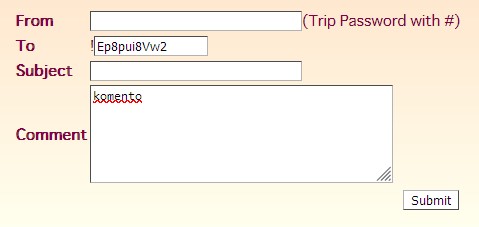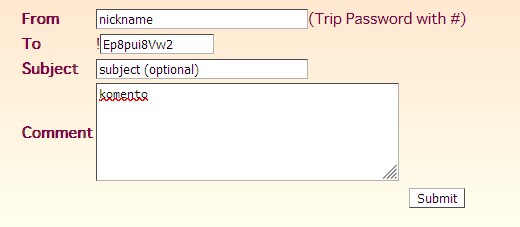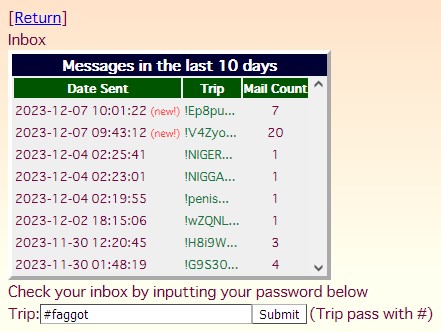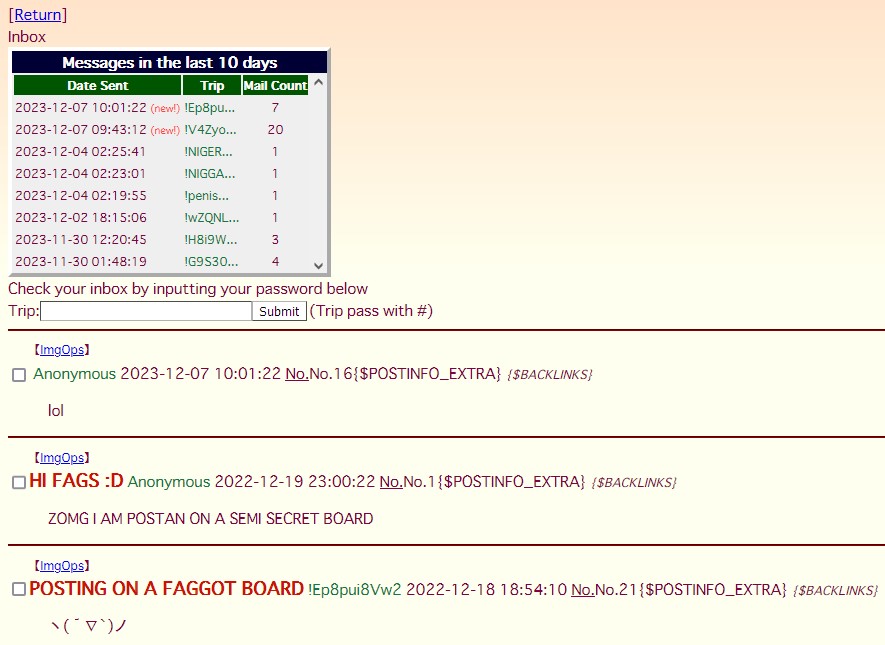Tripcode-based PM Module
Kokonotsuba has a module which allows private messages across tripcode users. Currently it only supports normal tripcodes (and not secure tripcodes).
Writing PMs
Click on [Write PM] link at the top right of kokonotsuba boards.
Fill in the fields like demonstrated below.

You can leave the name field empty for Anonymously sending a message, or enter nickname of your choice without a tripcode. Obviously you can't get any answer back this way.


If you want to get back a reply but don't want to pick a name, you can only enter a tripcode too. Alternatively, you can enter your name as Anonymous#password too if you prefer that.

After clicking on the "Submit" button, it will ask for your confirmation. Proofread it, then simply click on the Submit button again.
Reading PMs
Click on [Inbox] link at the top right of kokonotsuba boards.
Enter your password like below, then click on "Submit"

After that you should be able to read your messages as shown below. Note that how it displays messages is a bit messy for now, but it should be good enough. Newest messages will appear at the top.

Is this secure?
It's as secure as your tripcode password is. Technically the administrator is able to read your messages, but it's impossible to prove he won't read them. If this bothers you, you can always use some kind of encryption for your messages.
How do I know if my tripcode is secure?
Tripcodes are technically safe enough as they can't be reverse engineered, there are only some services one could use to try to bruteforce passwords, which would take forever to crack a tripcode with an ordinary computer. However, tripcodes have been used for over 2 decades on the internet and there are major databases of tried passwords instead one could search. Here is the biggest tripcode database on the internet I'm aware of, use it to make sure your password isn't listed there.
Tip 1: Only the first 8 letters of a password matter, the rest aren't taken into account for encryption.
Tip 2: It is recommended to avoid using words from the dictionary for passwords, as they can be easily brute-forced.